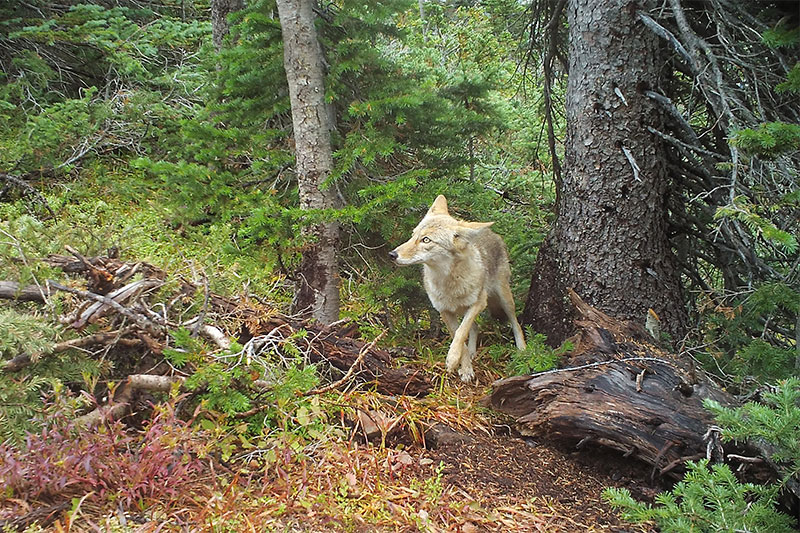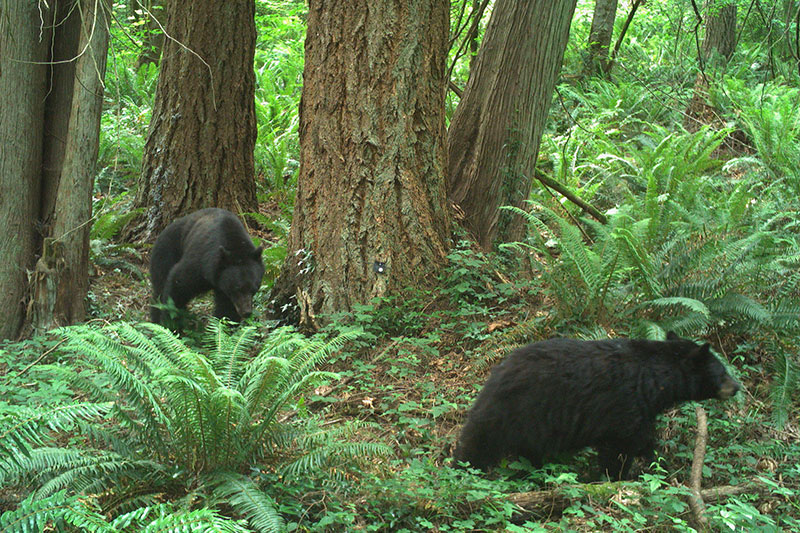CARNIVORE RESEARCH
Northwest Carnivore Monitoring
Developing advanced research methods to save local species
CARNIVORES & CLIMATE CHANGE
A Future for Cascades Carnivores
Rare carnivores such as wolverines, Canada lynx, Cascade red foxes, and gray wolves call the Cascade Mountains home, with the return of grizzly bears hopefully just over the horizon. The Cascades are one of the only places in the contiguous US capable of supporting these iconic carnivores—who help keep their habitats healthy and wild.
Climate change and other human impacts threaten today’s carnivore populations. For example, the persistent spring snowpack that wolverines rely on for maternal denning is at risk from our warming climate, and the high-elevation forests inhabited by lynx have been decimated by catastrophic wildfires. Carefully monitoring these vulnerable populations is vital to effective conservation.
KEEPING TRACK OF CARNIVORES
Woodland Park Zoo develops cutting-edge methods to survey rare carnivores in the rugged mountains of the Pacific Northwest. We specialize in noninvasive methods that don’t require wild animals to be physically captured—including our own automated scent dispenser that attracts carnivores to remote, motion-triggered cameras. Our survey protocols are being widely used by zoo researchers and other biologists to help us examine how carnivore populations are responding to climate change.
Hope for Northwest Carnivores

Project Collaboration
We’re collaborating with a diverse network of agencies, tribes, academic institutions, and nonprofits to develop long-term monitoring plans for carnivores in the Cascades and Olympic Ranges.

Probing Data
To make the best use of the copious data we collect with camera traps, we’re exploring how advanced analysis techniques, including artificial intelligence and machine learning, can yield valuable information about carnivore populations.
MORE WAYS TO HELP